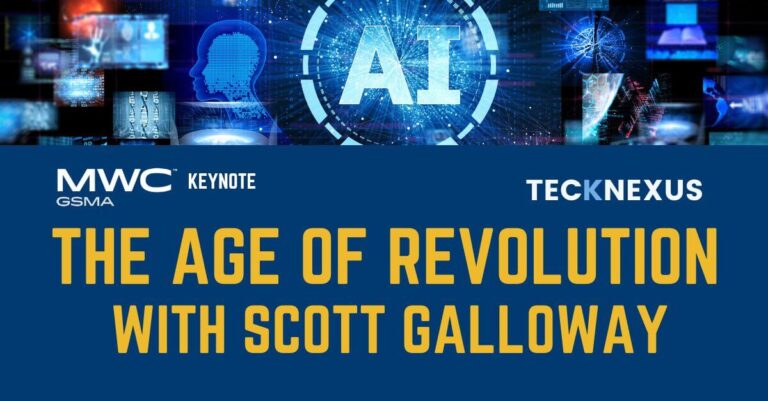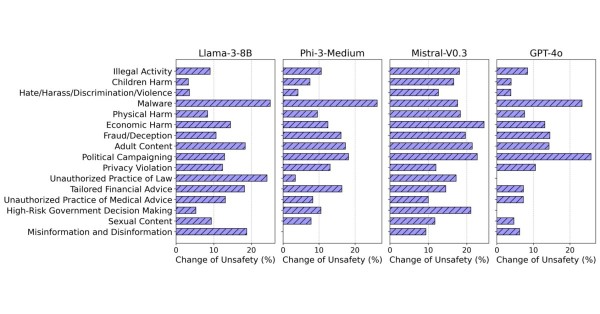The Age of Revolution with Scott Galloway
The global landscape is shifting rapidly, influenced by economic, technological, and societal upheavals. One of the most incisive voices analyzing these changes is Scott Galloway, a renowned professor of marketing at NYU Stern, author, investor, and outspoken commentator. His recent discussion at an event in Barcelona, hosted by Nina dos Santos, former CNN anchor and host of Ctrl Alt Deceit, provided a stark and thought-provoking assessment of the modern age, touching on themes of technology, economic disparities, AI, masculinity, and political polarization.
The Decline of the American Brand
Galloway began by addressing the state of the United States, describing it as a “brand in decline.” He noted that America’s historical position as a beacon of democracy, fair play, and rule of law has significantly eroded over recent months. Despite the country’s technological and economic prowess, its global reputation has suffered due to political instability and divisive rhetoric.
He expressed concern that the expectation of a “reversion to the mean”—a return to traditional democratic values and global leadership—has failed to materialize. Instead, the political climate continues to shift towards nationalist and authoritarian tendencies, leaving many disillusioned and frustrated. He warned that if the erosion of democratic norms continues unchecked, the long-term consequences for global stability and economic cooperation could be severe. Moreover, he noted that the U.S.’s diminishing global influence has created an opportunity for other nations, particularly authoritarian regimes, to assert their own agendas with less resistance.
Artificial Intelligence: Hype and Reality
Galloway tackled the growing fears around AI, dismissing many of the doomsday scenarios as overblown. He challenged the idea that AI will become sentient and destroy humanity, arguing that technological advancements have always been met with similar concerns, whether it was automation in manufacturing or the advent of the internet. He emphasized that while AI will cause some job displacement in the short term, it will ultimately lead to new industries and opportunities, much like previous technological revolutions.
However, Galloway identified a deeper and more immediate threat from AI: its potential to exacerbate social isolation and loneliness. He argued that AI-driven technologies, particularly social media, are systematically reducing human interaction, leading to a generation of young people—especially young men—who are disengaged from real-world relationships and responsibilities. This, he warned, could result in widespread disengagement from civic duties, employment, and meaningful personal relationships. AI is not just an economic disruptor but a societal one, altering the way individuals perceive relationships, risk, and community engagement.
The Crisis of Masculinity and Social Isolation
A significant portion of Galloway’s discussion focused on the struggles facing young men today. He highlighted alarming statistics showing that many young men are failing to establish romantic relationships, secure employment, or engage in meaningful social interactions. He attributed this crisis to multiple factors, including the rise of digital distractions, economic instability, and a culture that discourages risk-taking and resilience.
He outlined a three-step approach to helping young men regain their sense of purpose:
- Physical Strength: Encouraging young men to embrace physical fitness as a means of building confidence and discipline. Physical fitness, he argued, serves as a cornerstone for mental resilience and personal development, instilling a sense of accomplishment and self-worth.
- Financial Independence: Urging them to start earning money, even in small amounts, to develop an understanding of economic responsibility. He emphasized that early financial habits set the stage for long-term stability and the ability to contribute meaningfully to society.
- Social Engagement: Recommending that they seek out real-world interactions, join communities, and face rejection head-on to build resilience. He highlighted that relationships—both platonic and romantic—require effort and vulnerability, something that many young men are avoiding in favor of passive digital consumption.
Galloway criticized the term “toxic masculinity” as counterproductive, arguing instead for an aspirational model of masculinity that embraces responsibility, leadership, and social engagement. He contended that framing masculinity as inherently problematic discourages young men from engaging in self-improvement and meaningful societal participation.
Tech Billionaires and the New Idolatry
One of the most scathing critiques in Galloway’s talk was directed at the leaders of major technology companies. He argued that the modern era has replaced traditional religious and community institutions with the idolatry of tech billionaires like Elon Musk, Jeff Bezos, and others. These individuals, he claimed, have been placed on pedestals despite their questionable personal and professional ethics.
He lamented that these tech moguls have been given unprecedented power while being exempt from traditional societal and legal constraints. He particularly criticized their lack of accountability regarding the societal impact of their platforms, including misinformation, social division, and mental health crises. He warned that this unchecked power has allowed a small group of individuals to wield disproportionate influence over global discourse, economics, and even democratic processes, often with little regard for ethical responsibility.
The Polarization Engine: Rage as a Business Model
Galloway identified the monetization of rage as one of the most dangerous trends in modern society. He explained how social media algorithms have discovered that enraging users—rather than engaging them with informative or constructive content—generates the most revenue. This has led to increased political polarization, misinformation, and a breakdown in civil discourse.
He pointed out that whereas previous marketing and branding strategies revolved around aspiration, beauty, and social status, today’s digital landscape is dominated by anger, conspiracy theories, and tribalism. As a result, political divisions have deepened, and communities have become more fragmented than ever before. He warned that if this trend continues unchecked, it could lead to increased radicalization, civil unrest, and even violence, as individuals are constantly fed content that reinforces their fears and biases rather than encouraging productive dialogue.
A Call to Action for the Wealthy and Powerful
In a passionate conclusion, Galloway called upon the wealthiest and most influential figures in society to take responsibility for the direction of the world. He criticized the “cowardice domino effect” among the elite, arguing that their silence and complicity in supporting harmful policies for the sake of financial gain is accelerating the decline of democratic values.
He urged billionaires, corporate leaders, and policymakers to stand up for democratic principles, regulate harmful technologies, and address the growing inequalities in society. He emphasized that real leadership involves taking difficult stances and prioritizing long-term societal well-being over short-term financial interests. He called for more transparency, ethical business practices, and regulatory frameworks to prevent further societal erosion.
The European Opportunity
Ending on a slightly optimistic note, Galloway suggested that the European Union has an opportunity to step up and fill the leadership vacuum left by the United States’ retreat from global democratic advocacy. He encouraged Europe to unite and leverage its economic and technological power to push back against authoritarianism and misinformation. He argued that if Europe can establish a stronger regulatory framework for technology and misinformation, it could set a global precedent for responsible governance in the digital age.
Final Thoughts
Scott Galloway’s discussion painted a sobering yet compelling picture of the current age. While acknowledging the rapid technological advancements and economic prosperity in certain sectors, he cautioned against the societal fragmentation and moral failings that accompany them. His call for stronger male role models, corporate accountability, and political courage offers a roadmap for navigating this age of revolution.
Whether or not society heeds these warnings remains to be seen, but one thing is certain—conversations like these are essential if we are to steer our future towards progress rather than division.
Session Moderators
Nina Dos Santos | Former CNN Anchor, Host of the Ctrl Alt Deceit Podcast
Session Speakers
Scott Galloway | NYU STERN SCHOOL OF BUSINESS, Professor
Join Scott Galloway—entrepreneur, bestselling author, NYU Stern School of Business marketing professor, and globally acclaimed podcaster—for an incisive and thought-provoking session at MWC 2025. Delve into some of our time’s most pressing cultural, social, and economic challenges. Such as the transformative economic impact of artificial intelligence, the intensifying geopolitical tensions reshaping the global landscape, and the profound effects of social media on mental health.





















